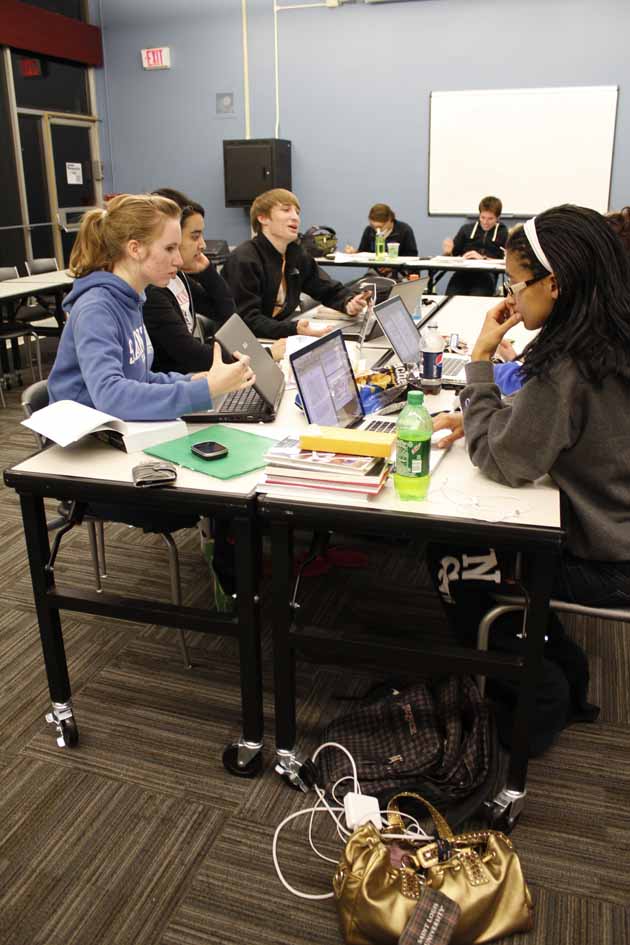
With finals a week away, students all over Saint Louis University’s campus are saying the same thing.
“I’m feeling stressed,” sophomore Mary Anderson said. “I haven’t really started studying.”
Michael Ross, a professor of Clinical Psychology at SLU, said stress about big events like finals is normal. The stress, however, stems not from the event itself, but from the appraisal of the event.
“The first component of a stressor is that it’s usually some change or something that’s taxing us in some way, and the second piece is how well we think we can cope with that,” Ross said, “so it is our appraisal of the stressor and our appraisal of how we can manage it.”
Ross said that often with the same event, people either accept the stress as an opportunity or allow it to make them miserable. Those who measure the stress as an approachable challenge often fair better than those who let the gravity of the situation consume them.
“With stress, there are physiological changes that occur and emotional changes. People are more nervous, and we may shake, we may have shortness of breath, and then you have the cognitive components, which is that worry,” Ross said. “We worry about it, and think about it, and it goes over and over, which is not particularly productive unless we are coming up with plans to do something about it.”
While experiencing high levels of stress, according to Ross, resistance to the stressor actually goes up initially. Over time, however, this resistance weakens the immune system, making the stressed individual more susceptible to illness. This is why students commonly get sick after finals—their defenses are worn out. Meredith Obsorn, a counselor in Student Health and Counseling Services, said that the biggest side effect of stress she sees in students is a heightened level of anxiety, which can lead to panic attacks and increase drug and alcohol use.
“We did the Missouri College Health and Behavior Survey, and we had 85.3 percent of students report that stress interferes with their personal life. That’s a high percentage,” Obsorn said. “We also had 69.7 percent report academics were the biggest source of stress. Time management was 47.2 percent, and financial concerns and social relationships were both stressors as well.”
If a student comes to Counseling services to deal with stress issues, the counselors will set up a one-on-one meeting to really get to the heart of the matter and discuss tactics for dealing with the stress.
“Stress just doesn’t go away, so we talk about ways to manage it,” Obsorn said. “SLU students report reaching out to friends and peers when they are stressed but also to spiritual advisors and academic advisors.”
Students also cited using time management skills, smiling and laughing, taking naps, deep breathing, shopping and crying as ways they cope. Ross also strongly advocated exercise as excellent way to cope.
“There have been several studies that shows exercise has tremendous effects on stress,” Ross said. “Just take a walk, wander around campus or get out and do something.”
Health and Counseling encourages students to seek help if the stress becomes overwhelming or if it drives them to use extreme coping measures, such as drinking heavily, drug abuse or disordered eating. When stress starts interfering with life or relationships, talking to someone is highly encouraged.
Students will continue to battle stress, but many are glad there is an end in sight.
“I’ll be glad when it’s over,” freshman Sarah Harrington said. “I’m looking forward to May 17th.”









